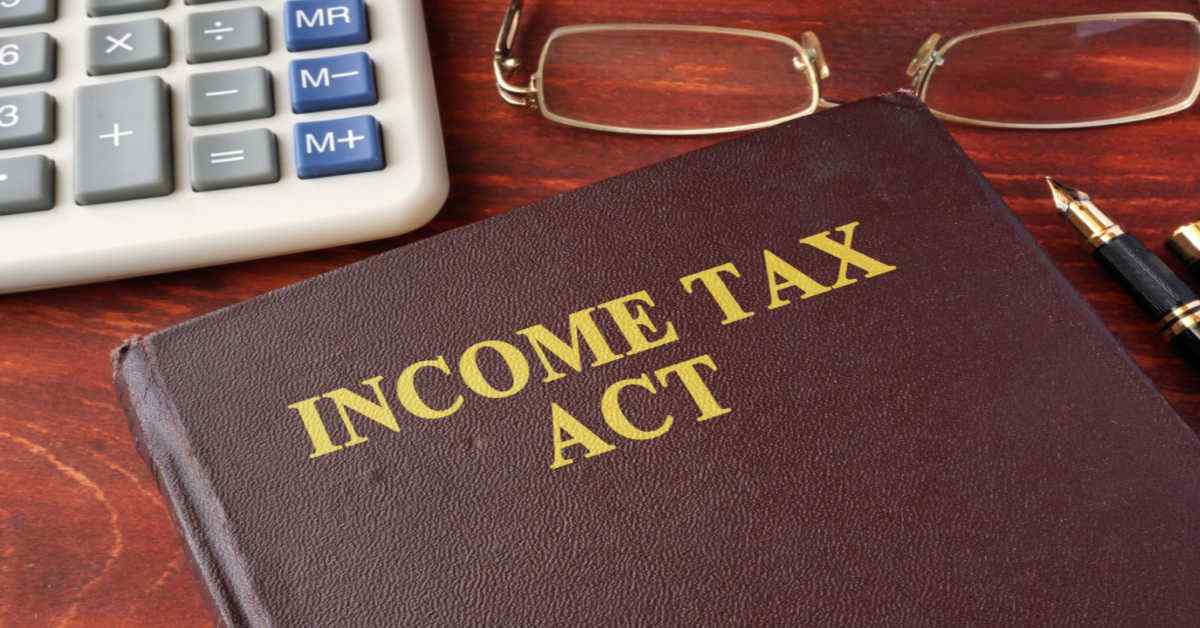Table of Contents
Quality Service Guarantee Or Painting Free

Get a rental agreement with doorstep delivery

Find the BEST deals and get unbelievable DISCOUNTS directly from builders!

5-Star rated painters, premium paints and services at the BEST PRICES!
Loved what you read? Share it with others!


Submit the Form to Unlock the Best Deals Today
Help us assist you better
Check Your Eligibility Instantly

Experience The NoBrokerHood Difference!
Set up a demo for the entire community
Capital Gain on Sale of Property: Know How It Affects Your Taxes in 2025
Table of Contents
Capital Gain on Sale of Property refers to the profit you make when you sell a property for more than what you originally paid. This profit is called a capital gain. In simple terms, if you sell your property at a higher price than what you bought it for, the difference between the selling and purchase prices is your capital gain.
In India, capital gains on property sales are taxable, and the tax rate depends on how long you've owned the property. If you've held the property for more than 2 years, it's considered a long-term capital gain and is taxed at a lower rate. If you've owned it for less than 2 years, it's a short-term capital gain taxed at your regular income tax rate.
Capital Gain on Sale of Property
The profit or gain that the seller makes on selling his capital asset will be termed Capital Gain. Note that the profit will be categorised as income, and one needs to pay the applicable tax on that particular amount in the same year the transaction has taken place. This tax is also known as the Capital Gain tax on the sale of the property. These gains can also be subdivided into long-term and short-term capital gains.
Quality Service Guarantee Or Painting Free

Get a rental agreement with doorstep delivery

Find the BEST deals and get unbelievable DISCOUNTS directly from builders!

5-Star rated painters, premium paints and services at the BEST PRICES!
What are capital assets?
Any immovable property, like land, house, machinery, jewellery, etc., that is Indian by origin or has a relationship with Indian companies is classified as capital assets. Capital assets do not include:
- Any consumable or raw material stored for professional/business purposes
- Personal items such as clothing and furniture
- Agricultural land
- National defence gold bonds issued by the government
- Special bearer bonds
- Gold deposit bonds
What are short-term and long-term capital assets?
Any immovable property (land. House, buildings) that has been held for a maximum of 24 months or less is a short-term capital asset. Therefore, any income arising from the sale of such properties is a short-term gain.
Similarly, any immovable property (land, house, building) held for more than 36 months before sale will be considered long-term capital assets. Accordingly, the profit incurred on purchasing these assets will be regarded as long-term capital gains.
Tax Rate Chart for Income on Sale of Assets
Here's a tax rate chart for income on the sale of various assets in India:
| Type of Asset | Duration of Holding | Type of Capital Gain | Tax Rate |
| Equity Shares | < 12 months | Short-term | 15% |
| Equity Shares | > 12 months | Long-term | 10% (if gain exceeds Rs. 1 lakh) |
| Non-Equity Assets (excluding Real Estate) | < 36 months | Short-term | As per income tax slab rate |
| Non-Equity Assets (excluding Real Estate) | > 36 months | Long-term | 20% with indexation benefits |
| Real Estate Property | Any | Capital Gain | As per applicable rules |
Note: Gains up to Rs. 1 lakh are exempt from tax on the sale of equity shares held for more than 12 months.
Real estate property: Any gain on the sale of real estate property is considered as capital gain and is subject to tax as per the rules mentioned earlier in this conversation.
How to Calculate Capital Gain on the Sale of Property
Before calculating capital gains, you need to get familiar with a few standard terms and their meanings. Let’s get started.
- Full Value consideration: This is the amount the seller is expected to receive due to the asset transfer. Capital gains are taxed in the year of the transfer itself, even if no consideration is received.
- Cost of Acquisition: The original sale price of the house/property. In simpler terms, the amount paid by the seller to acquire the property in the first place.
- Cost of Improvements: Any additional expense incurred to alter the capital asset.
How to Calculate Short-Term Capital Gain on the Sale of Property
This is the basic formula for calculating:
STGC (Short-term capital gain) = Full Value Consideration- (Expenses incurred during such the transaction + Cost of Acquisition + Cost of Improvements)
How to Calculate Long-Term Capital Gain on Sale of Property
Follow these few steps:
- Start with the total value consideration of the property.
- Now, make the following deductions:
- Expenditure incurred due to the property transfer
- Indexed cost of acquisition
- Indexed cost of improvement
- Now deduct the exemptions provided under Sections 54, 54EC, 54F and 54B.
- Deductions that are allowed for long-term capital gain on the sale of house property:
- Brokerage/Commission fees
- Stamp duty
- Travel costs incurred during the transfer
- Expenditures associated with gaining will/inheritance/succession certificate (in case of inherited properties)
Indexed cost of acquisition/improvement
Also known as the Cost Inflation Index (CII), this is done to adjust the inflation when the asset is being held. This leads to two consequences:
- It increases the cost price/the value of consideration
- Capital Gains are lowered
Long-Term Capital Gain on Sale of Property
The profits earned by selling a long-term asset (held for more than 36 months) will be considered long-term capital gains. Currently, the long-term capital gain tax on the sale of the property is 20% of the sale consideration.
Short-Term Capital Gain Tax on the Sale of Property in India
Any profits arising from the sale of a short-term asset (held for less than 24 months) are considered short-term capital gains. Currently, the short-term capital gains tax rate on the sale of a property is 15% in transactions where securities transaction tax is applicable.
Capital Gain Exemption on the Sale of House Property
As section 54 of the Income Tax Act mentions, certain conditions and types of properties can be exempt from capital gains tax. Here are the requirements to gain capital gain exemption on a sale of residential property:
- Assets must be long-term capital assets.
- The asset is a residential property. The income gained from selling these will be considered income from house property.
- The seller should purchase another house property one year before the date of sale or two years after the date of transfer.
- The new house should be in India. You cannot claim this exemption if the new property is not in India.
Also, since the ancestral property is inherited, there is no capital gain on its sale. However, if the inheritor decides to sell it afterwards, the profits are taxable.
Capital Gain Tax on Sale of Commercial Property
For commercial properties that are let out, the profit arising will be taxable for Capital Gains tax. If the property is held for more than 24 months, the long-term capital gains tax comes at a flat 20%, irrespective of the quantum.
How to Avoid Capital Gains Tax on Sale of Commercial Property in India
Avoiding capital gains tax on the sale of commercial property in India can be achieved through several strategies under the Income Tax Act of 1961. Below are some key methods:
- Reinvestment in Residential Property (Section 54): By reinvesting the sale proceeds from your commercial property into a residential property within one year before or two years after the sale or within three years of construction, you can claim an exemption under Section 54. This provision encourages reinvestment in the housing sector and allows you to defer the capital gains tax, provided the entire amount is reinvested.
- Investment in Capital Gains Bonds (Section 54EC): Investing in specified capital gains bonds issued by the National Highway Authority of India (NHAI) or Rural Electrification Corporation (REC) within six months from the date of sale can exempt up to ₹50 lakhs of your gains from tax. These bonds must be held for at least three years to claim the exemption, offering a tax-efficient investment while supporting national infrastructure projects.
- Indexation Benefits: Holding a commercial property for more than 24 months qualifies as a long-term capital asset, allowing you to use indexation benefits. Indexation adjusts the property's purchase price to account for inflation using the Cost Inflation Index (CII), thereby reducing the capital gains amount and lowering your tax liability.
- Capital Gains Account Scheme (CGAS): If you cannot reinvest the gains immediately, depositing them in a Capital Gains Account Scheme (CGAS) allows you to defer tax liability. You must deposit the amount before the due date to file your income tax return for the relevant financial year. This scheme provides a temporary solution until you can reinvest the funds into a new property.
- Plan the Sale in a Low-Income Year: Timing the sale of your commercial property in a year when your overall income is lower can help reduce your capital gains tax. Lower total income for the year means the capital gains will be taxed at a lower rate, leveraging the progressive tax structure to minimise your tax outflow.
- Structure the Sale as Installments: Structuring the sale in instalments rather than receiving the entire amount in a single year helps spread the capital gains over multiple financial years. This can keep your income within lower tax slabs each year, effectively reducing the overall tax burden on capital gains and providing a steady cash flow.
- Professional Tax Planning: Engaging a tax professional or financial advisor can provide you with personalised tax planning strategies to minimise your capital gains tax. Tax professionals are well-versed with the latest tax laws and regulations and can help identify additional deductions, exemptions, and investment opportunities that align with your financial goals.
Capital Gain on Sale of Residential Property
This is the same as the capital gains on selling a house. If held for over two years, the long-term capital gains tax is computed at 20% of the consideration value.
The Capital Gain Tax Rate on the Sale of Property
As discussed under the Income Tax Act, the seller must pay the capital gains for movable and immovable property.
How to Avoid Capital Gains Tax on Sale of Residential Property in India
Avoiding capital gains tax on the sale of residential property in India can be achieved through several strategies under the Income Tax Act of 1961. below are six key methods:
- Reinvest in a Residential Property in a Rural Area (Section 54B): If you sell agricultural land and reinvest the proceeds into purchasing new agricultural land in rural areas, you can claim an exemption under Section 54B. This provision allows you to avoid paying capital gains tax on the sale of agricultural land, provided it is used for agricultural purposes after reinvestment.
- Claim Deductions for Improvement Costs: While calculating the capital gains, you can deduct the costs incurred on improvements or renovations made to the property. These costs are added to the property's acquisition cost, effectively reducing the taxable capital gains. Keep proper documentation and receipts of the improvement work done to support your claim.
- Set Off Long-Term Capital Losses: If you have other long-term capital losses (such as from the sale of stocks or other assets), you can set them off against your long-term capital gains from the sale of property. This helps reduce the taxable amount.
- Use the Property for 2 Years Before Selling: To qualify for long-term capital gains (LTCG) tax treatment, you must hold the property for at least two years before selling. Properties held for less than two years are considered short-term and are taxed at a higher rate.
- Reinvest in Another Residential Property: Under Section 54 of the Income Tax Act, if you reinvest the capital gains from the sale of a residential property into another residential property within 2 years or within 3 years for under-construction properties, you can claim an exemption on the capital gains tax.
- Exemption for Inherited Properties: If the property was inherited and you sell it, the holding period of the deceased owner is considered your holding period. This may help reduce the tax, as long-term capital gains tax will apply if the inherited property has been held for over two years.
Capital Gain on Sale of Immovable Property
The capital gains tax rate on immovable property is 20% for long-term assets and 15% for short-term assets.
Long-Term Capital Gain on Sale of Residential Property
It is the same as a long-term capital gain on the sale of a house. The new tax law imposes a 20% long-term capital gains (LTCG) tax on the sale of commercial properties.
Long-Term Capital Gain Tax on Commercial Property
When a commercial property is sold, any gain on the sale is considered capital gain, which is subject to taxation as per the Income Tax Act of India. The tax treatment for long-term capital gains on the sale of commercial property in India is as follows:
- Calculation of long-term capital gains: Long-term capital gains (LTCG) are calculated by subtracting the indexed acquisition cost from the commercial property's sale price. The indexed cost of acquisition is arrived at by adjusting the property's purchase price for inflation using the government-published cost inflation index.
- Tax rate for LTCG on commercial property: The current tax rate for LTCG on commercial property is 20%. However, an exemption is available under section 54EC of the Income Tax Act, allowing taxpayers to save on tax liability by investing the LTCG in government-approved bonds. The maximum amount that can be invested in these bonds is Rs. 50 lakh per financial year, and the investment needs to be made within six months from the commercial property's sale date.
- Surcharge and cess: In addition to the LTCG tax rate, a 10% surcharge applies to individuals with taxable incomes of Rs. 50 lakh to Rs. 1 crore, and a 15% surcharge applies to those with taxable incomes above Rs. 1 crore. A 4% cess is also applicable to the total income tax liability.
Utilizing Section 54: How to Gain Exemption on Sale of House Property
Understandably, capital gains tax can significantly impact your finances after selling a house property. However, the Income Tax Act of 1961 offers a provision—Section 54—that allows exemption from this tax, given that certain conditions are met.
Section 54 specifies that if the full proceeds from the sale of a residential house property are reinvested into purchasing or constructing another residential property within a designated timeframe, you can be exempted from the capital gains tax.
The amount of exemption is essentially the lesser of these two factors:
- The capital gains procured from the sale of the old property.
- The cost of the new house property.
To take advantage of this exemption, you must reinvest the sale proceeds within one year before or two years after the date of transferring the old house property. For instance, if your old property was sold on 1st January 2023, you have until 31st December 2024 to reinvest the proceeds to claim the Section 54 exemption.
However, it's important to meet certain conditions to claim this exemption:
- Both the old and new house properties must be situated in India.
- The newly purchased property should be residential.
- The new house property must be registered in the name of the seller of the old property.
Once these conditions are fulfilled, you can claim the exemption under Section 54 during your income tax return filing for the corresponding assessment year.
Here are some practical tips to maximize the benefits of Section 54:
- Ensure timely purchase of the new house property within the given timeframe.
- Make sure the new house property is residential.
- Register the new property in your name.
- Maintain all relevant documentation, such as the sale deed of the old property, the purchase deed of the new one, and bank statements proving the reinvestment of sale proceeds.
- Remember to claim the exemption under Section 54 when filing your income tax return for the relevant year.
Armed with this knowledge, you can make an informed decision when selling your property and potentially save a significant amount in taxes.
Exploring Section 54EC: Saving Capital Gains Tax via Bond Investment.
Section 54EC of the Income Tax Act offers a way to save on capital gains tax when you sell a property. You can avoid paying tax on those gains if you invest the profit from selling a long-term asset (like real estate) in specific government-approved bonds within six months.
These bonds are usually issued by government organizations like the National Highways Authority of India (NHAI) and the Rural Electrification Corporation (REC). You need to invest the gains for at least five years, and the maximum amount you can invest in these bonds is ₹50 lakhs in a financial year.
This method is a safe and reliable way to protect your profit and reduce your tax burden when you sell property, making it a good option for investors looking to secure their gains.
- Sell Property (Long-term asset):
- Trigger event: Selling a property or long-term capital asset.
- Capital Gains: Profit from the sale is subject to capital gains tax.
- Within 6 Months:
- Invest in 54EC Bonds: You must invest the capital gains in eligible bonds like NHAI or REC within 6 months from the date of sale.
- Lock-in Period (5 Years):
- Hold Bonds for 5 Years: An investment in 54EC bonds must be held for at least 5 years to qualify for the tax exemption on capital gains.
- After 5 Years:
- Redeem Bonds: After the 5-year lock-in period, you can redeem the bonds without paying capital gains tax on the original profit.
This timeline helps you defer capital gains tax by investing in Section 54EC bonds, saving on taxes while securing your profits.
How to Leverage the Benefits of Section 54EC
- Property Sale Timeline: Ensure the old property is sold within the specified timeframe.
- Bond Investment: Make your bond investments within six months from the property transfer date.
- Minimum Hold Period: Retain the bonds for at least three years.
- Maintaining Documentation: Safeguard crucial documents, like the property's sale deed, the investment certificate for the bonds, and bank statements showing the bond investments.
- Claiming Exemption: When filing your income tax return for the relevant year, remember to claim your exemption under Section 54EC.
Understanding and applying these provisions can substantially help in capital gains tax savings from your property sale.
How to Save On Capital Gains Tax While Selling Your Property
When you sell a property, any gain on the sale is considered as capital gain, which is subject to taxation as per the Income Tax Act of India. However, there are some strategies you can use to save on capital gains tax while selling your property. Here are some ways to save on capital gains tax:
- Bond Investment: Section 54EC allows tax savings by investing capital gains in specified bonds with a five-year lock-in period. The investment should be within six months of a property sale.
- New Property Purchase: Under Section 54, tax on capital gains can be avoided by buying another property within two years of the sale of the current property.
- Residential Property Investment: As per Section 54F, investing capital gains in a residential property within specified timelines can reduce tax liability.
- Joint Ownership: Transfer property to family members, such as spouses or children, to leverage their tax benefits. Be mindful of potential legal and financial implications.
- Use of the Cost Inflation Index: Using the cost inflation index to adjust acquisition cost for inflation can lower taxable capital gains for properties held over two years.
By now, the capital gains on property sales are taxable under the Income Tax Act. However, the tax deduction rate will depend on the type of asset. If you are still confused about paying your taxes, contact our NoBroker financial experts, who will guide you. For more such tax-related information, visit our blog site. Click below for Legal advice from NoBroker.
Frequently Asked Questions
Ans: The short-term capital gains tax on the sale of a property is 15% of the original consideration value.
Ans: Even movable property like jewellery is liable for capital gains tax deduction under the Income Tax Act.
Ans: The capital gains tax rate for properties without registration is the same as that of residential properties. However, the tax is 20% for long-term properties without registration, the same as for houses.
Ans: If the property is held for more than 24 months, the long-term capital gains tax comes at a flat 20%, irrespective of the quantum.
Ans: Ancestral properties or properties received as gifts are not taxable under the Capital Gains Tax Act. However, if the inheritor decides to sell the property, the profit is taxed based on the Capital gains tax slab rate.
Loved what you read? Share it with others!
Most Viewed Articles

TDS on Sale of Property in 2025: A Detailed Guide
December 23, 2024
11990+ views

Demystifying Section 54B: Capital Gains on Sale of Agricultural Land
December 17, 2024
11806+ views

Top Property Selling App Guide for Effortless Sales in India
April 10, 2024
9018+ views

Section 27 of the Income Tax Act, 1961: Understanding Deemed Ownership
October 16, 2024
8104+ views

Capital Gain Account Scheme: Tax-Smart Real Estate Investment
December 23, 2024
7701+ views
We’d love to hear your thoughts
Join the conversation!
Recent blogs in
Understanding Section 54 of the Transfer of Property Act
January 15, 2025 by Prakhar Sushant
Capital Gain on Sale of Property: Know How It Affects Your Taxes in 2025
January 15, 2025 by Kruthi
Capital Gain Account Scheme: Tax-Smart Real Estate Investment
December 23, 2024 by Prakhar Sushant
TDS on Sale of Property in 2025: A Detailed Guide
December 23, 2024 by Vivek Mishra
Demystifying Section 54B: Capital Gains on Sale of Agricultural Land
December 17, 2024 by srivalli susarla




Rajender
Sold plot purchased in 2002,can I invest part amount to buy residential property and part in bonds to save tax